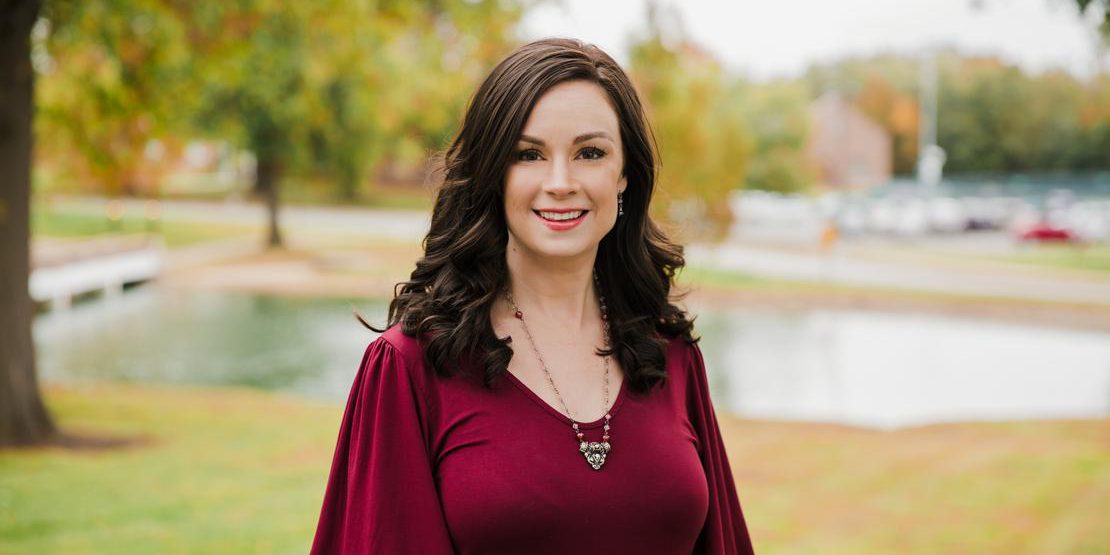What resources are available in the new Academic Advising Center?
The Academic Advising Center and Academic Success Center are now in two different areas, but still work closely together for students. In the advising center, we currently have Sarah Hamilton and Caitlyn Callahan who are both online advisors. I serve as the Director of Academic Advising and primarily work with undergraduate students. So in our office, our focus is to advise students and tell them if they are on track to graduate. We also help students with questions, so for example if they do not know how to log on to their online classes, we have a computer in the office and can help show them how to get setup. We are always happy to help with any question a student may have or direct them to the correct office. I also act as a second set of eyes between the student and their advisor to make sure that everything works well for that student.
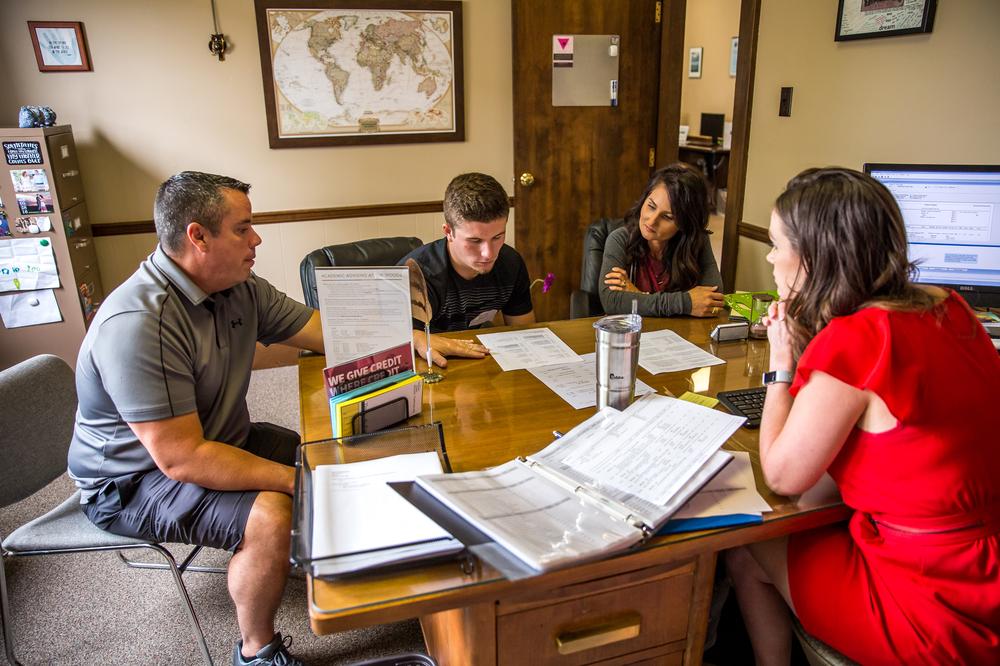
What benefits do the Academic Success and Advising Center provide?
The Academic Success Center and specifically the learning specialists are so helpful for students. For instance, if a student is just struggling with time management or getting out of bed on time in the morning, we have many tips and tools to help assist them with that, or really anything to help them change up their study habits. Sometimes it is as simple as asking a student how they study; we usually have them read over their notes, so we can introduce them to new ways to review the materials. They can get an app on their phone, or get a friend to help quiz them. The peer tutors work in the Academic Success Center and I know that the students use them in a variety of ways. Sometimes the tutor will go back over the material with them and sometimes they just help quiz them. They also have extra exam preparation sessions in the evenings. The Academic Success Center can help students with academic stress as well, if they are overwhelmed with the transition to a different style of learning.
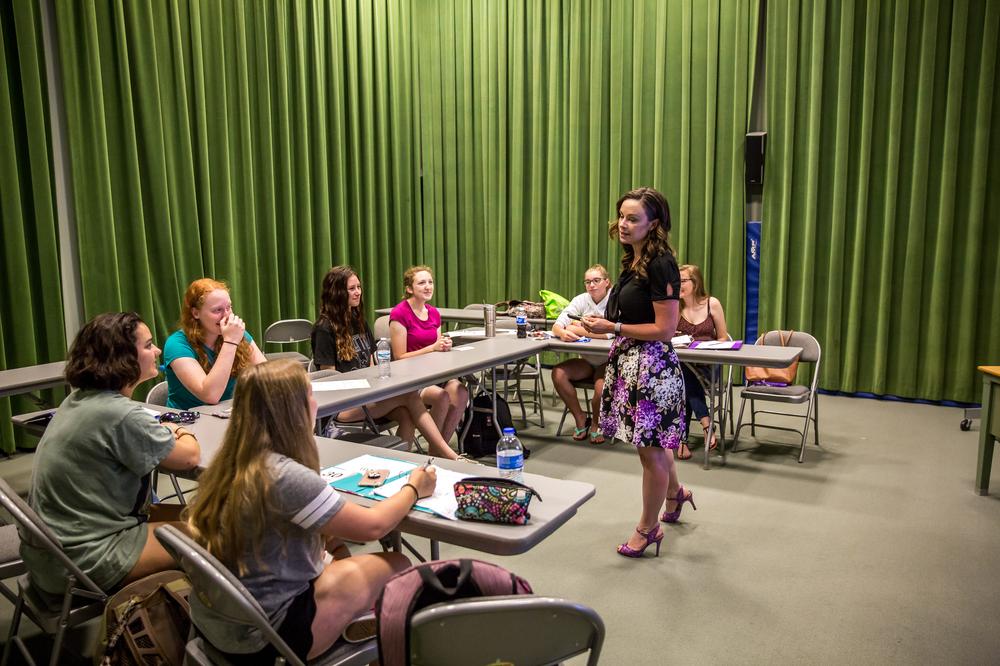
When should a student reach out to the advising center?
I get a lot of students who reach out the second semester of their junior year or the first semester of their senior year. That is a time that they start to realize that they need to look at their last few semesters and plan them out. I would absolutely recommend that students stop by or send an email to schedule an appointment if they want to make sure they are on track to graduate on the timeline that they want. They can always reach out to me when they want to. We have the freshmen that are always on top of everything and start planning from day one and then we have the ones that wait until the end of their junior year. We are happy for both to come into our office. We can help them prepare for graduate school or a career. If they want to go on to graduate school, we will also look at the requirements for the schools they are applying to, so we can make sure they meet that criteria as well.
What are some of the most common questions you get from students?
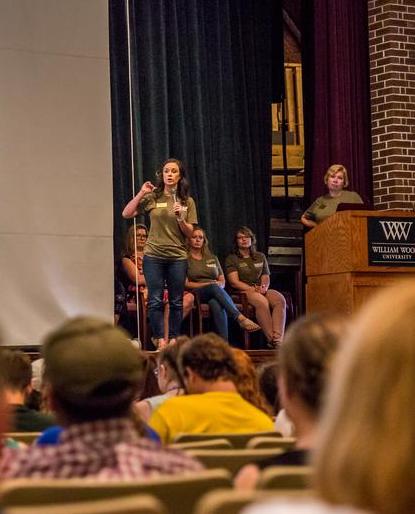
Students will ask if their 42 hours of upper-level credit hours have to be within their major, which it does not need to be. They will ask if they can minor in more than one subject or double-major, and we always tell them yes, but to plan ahead to stay on a timeline that they want. Students ask if they can have more than one concentration within their major, and they can do that, too. We also have students who come in asking if it’s a bad thing if they want to change their major. College is already a time of transition, and it’s a part of why I like working in higher education. It’s great if they have an epiphany and realize they might be interested in something else. As soon as they think they might want to switch majors, they should come in so we can make a plan A and a plan B. They do not have to make the decision right away, but it helps to be prepared and make that change now, rather than go into a career that may not be what they wanted.
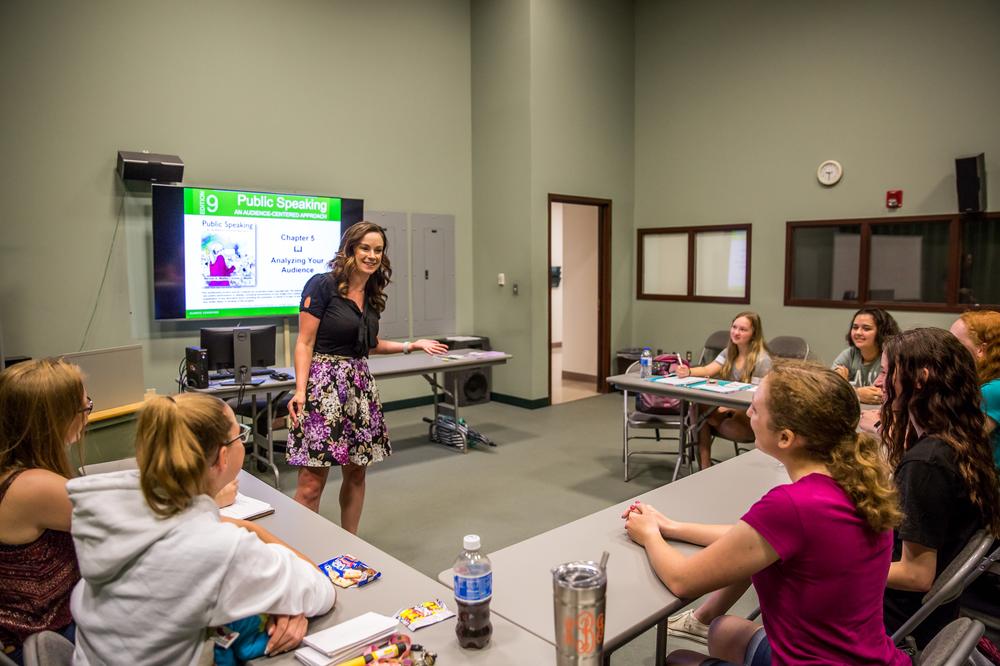
Why is it important for students to meet with their advisors?
It’s vital for students to meet with their advisors. There is a hold on students’ accounts until they meet with their advisors, but that is not the only reason it is important. When a student meets with their advisor at least once a semester, it helps both the student and advisor stay on track of the student’s goal. Finally, I would say there is no better advocate for you than your advisor. Students can choose an advisor and advisors are often the person a student can go to for a letter of recommendation or other help that they need.

